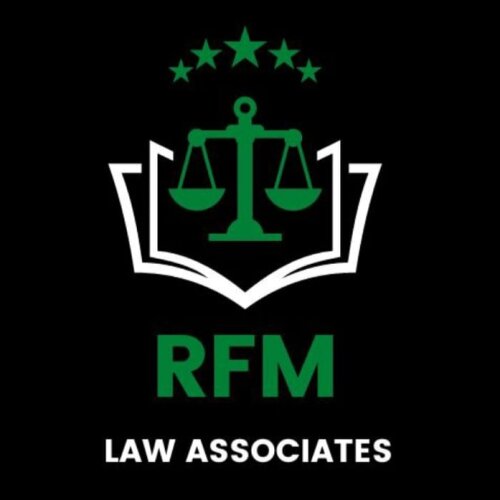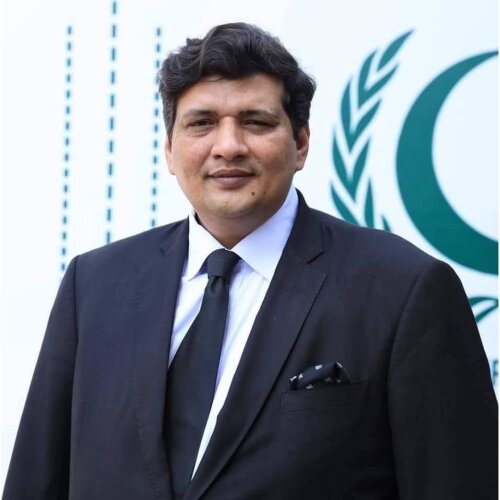Lawyer Answers

Rana Fazal Muhammad Law Associates
🇫🇷 Pakistan Embassy / Consulate in France
Normally 3–10 working days
If appointments are late → can take 2–4 weeks
Online appointment sometimes required
Attestation includes verifying:
– Passport identity
– Signature
– Document authenticity

Rana Fazal Muhammad Law Associates

Saeed and Moeez Law Firm

Muhammad Ali Law Associates
Wife files a Khula / dissolution suit before the Family Court at her place of residence.
Husband in France is issued notice through:
Local address (if any)
International postal service
Newspaper publication (if required)
If husband participates, his statement is recorded.
If he does not appear despite notice, ex-parte proceedings continue.
Lastly Family Court accepted the Suit of Khula / dissolution.
After decree, the Court sends order to Union Council / Arbitration Council to issue Divorce Effectiveness Certificate.
Typical Time Duration
Khula / dissolution case: approx. 2–6 months
If ex-parte: usually faster (≈2–4 months)
If contested: may take time
Issuance of Divorce Certificate (Union Council): around 30–45 days after decree
Embassy / Foreign Attestation
After getting Divorce Certificate, for use in France:
Notary attestation
MOFA attestation (Islamabad/Lahore/Karachi)
French Embassy attestation
Approx time:
MOFA attestation: 1–3 days
French Embassy / Consulate attestation: Usually 2–4 weeks depending on appointment schedules
Total foreign attestation timeline: 2–5 weeks
Sincerely,

mohammad mehdi ghanbari
I understand you are seeking information about the process for a khula or divorce from your husband who resides in France. This can be a challenging situation, and I hope the following general information is helpful.
The Khula Process
For individuals living abroad, a khula (a divorce initiated by the wife) can often be processed in the country where the marriage was registered, such as Pakistan, without you needing to be physically present.
Special Power of Attorney: The process typically begins with you appointing a representative (a trusted person or a lawyer) in that country. This is done through a document called a Special Power of Attorney, which you would need to get attested by the relevant embassy or consulate in your country of residence (e.g., the Pakistani Embassy in Switzerland).
Filing the Case: Your representative, with a lawyer, can then file for khula in a Family Court on your behalf. You will need to provide grounds for the divorce, such as incompatibility.
Court Decree and Final Certificate: If the court accepts the grounds, it will issue a khula decree. This decree is then submitted to an Arbitration Council, which waits for a period of up to 90 days to allow for any reconciliation. If reconciliation does not happen, a final Divorce Certificate is issued, officially dissolving the marriage.
Important Legal Considerations in France: A very important point to consider is that your husband lives in France. French courts have a history of refusing to recognize Islamic divorces obtained from other countries. Since 2004, the highest court in France has ruled that unilateral or religious divorces can violate the principle of equality between spouses, which is protected under French and European law.
This means that even if you obtain a khula certificate from another country, it may not be legally recognized in France. This could create significant complications regarding financial settlements, assets, or any other legal matters within France.
Timelines and Attestation: Process Duration: The time it takes for a family court to issue a decree can vary. After the decree, the Arbitration Council procedure takes up to 90 days.
Embassy Attestation: The time required for embassy attestation of the Power of Attorney can differ depending on the specific embassy and its workload.
Given the complexity of your situation, which involves the laws of multiple countries, it is highly recommended to seek advice from a qualified legal professional specializing in international family law.
If you would like to discuss the specifics of your case in more detail, I can offer a personal consultation via WhatsApp for a small fee to help guide you on the next steps.
Please feel free to reach out.

mohammad mehdi ghanbari
I understand you are seeking information about the process for a khula or divorce from your husband who resides in France. This can be a challenging situation, and I hope the following general information is helpful.
The Khula Process
For individuals living abroad, a khula (a divorce initiated by the wife) can often be processed in the country where the marriage was registered, such as Pakistan, without you needing to be physically present.
Special Power of Attorney: The process typically begins with you appointing a representative (a trusted person or a lawyer) in that country. This is done through a document called a Special Power of Attorney, which you would need to get attested by the relevant embassy or consulate in your country of residence (e.g., the Pakistani Embassy in Switzerland).
Filing the Case: Your representative, with a lawyer, can then file for khula in a Family Court on your behalf. You will need to provide grounds for the divorce, such as incompatibility.
Court Decree and Final Certificate: If the court accepts the grounds, it will issue a khula decree. This decree is then submitted to an Arbitration Council, which waits for a period of up to 90 days to allow for any reconciliation. If reconciliation does not happen, a final Divorce Certificate is issued, officially dissolving the marriage.
Important Legal Considerations in France
A very important point to consider is that your husband lives in France. French courts have a history of refusing to recognize Islamic divorces obtained from other countries. Since 2004, the highest court in France has ruled that unilateral or religious divorces can violate the principle of equality between spouses, which is protected under French and European law.
This means that even if you obtain a khula certificate from another country, it may not be legally recognized in France. This could create significant complications regarding financial settlements, assets, or any other legal matters within France.
Timelines and Attestation
Process Duration: The time it takes for a family court to issue a decree can vary. After the decree, the Arbitration Council procedure takes up to 90 days.
Embassy Attestation: The time required for embassy attestation of the Power of Attorney can differ depending on the specific embassy and its workload.
Given the complexity of your situation, which involves the laws of multiple countries, it is highly recommended to seek advice from a qualified legal professional specializing in international family law.
If you would like to discuss the specifics of your case in more detail, I can offer a personal consultation via WhatsApp for a small fee to help guide you on the next steps.
Please feel free to reach out.

Qadeer Ahmad Siddiqi Law Associates
We handle overseas spouse cases regularly and can assist you through the complete process, including documentation and embassy coordination.
—
Fahad Ahmad Siddiqi
Advocate Supreme Court of Pakistan
Family Law & Overseas Marriage Specialist
Lahore | Islamabad | Rawalpindi
Free • Anonymous • Expert Lawyers
Need Personal Legal Help?
Connect with experienced lawyers in your area for personalized advice on your specific situation.
No obligation to hire. 100% free service.
Related Legal Experts
Get personalized help from lawyers specializing in this area

All lawyers are verified, licensed professionals with proven track records


